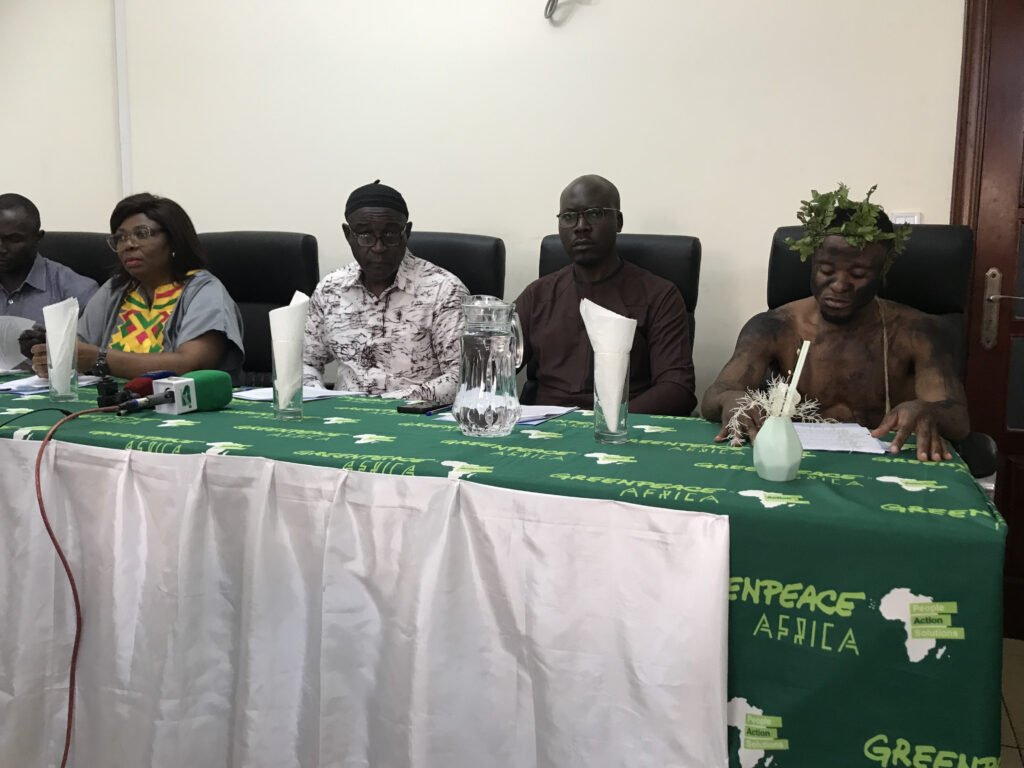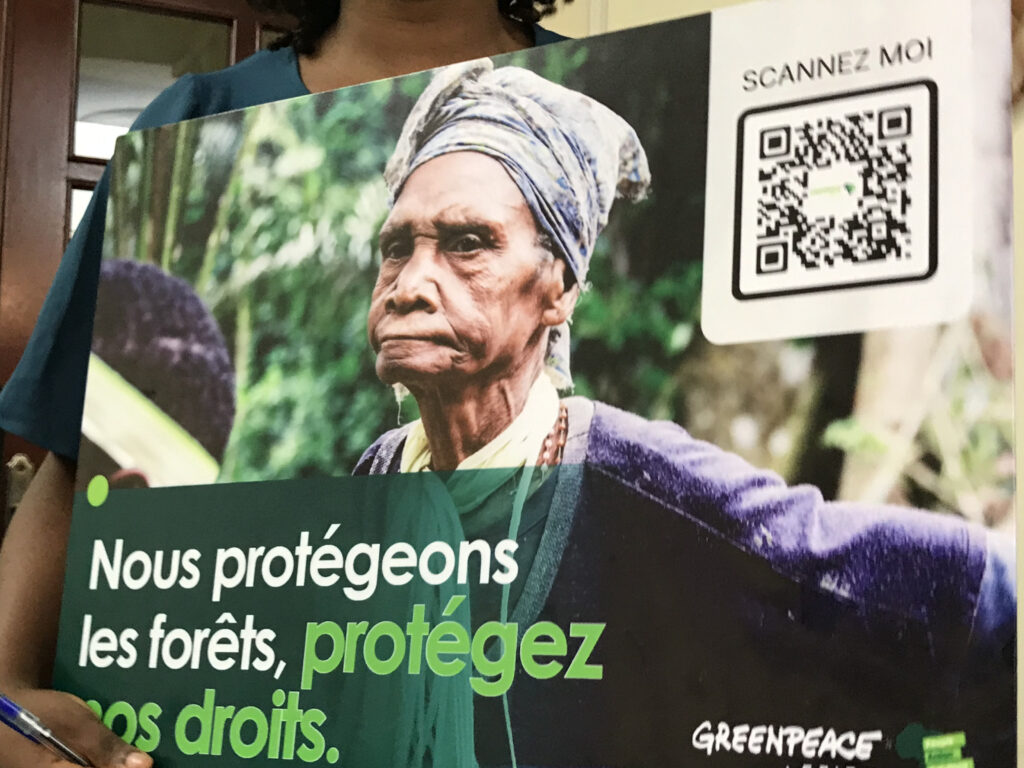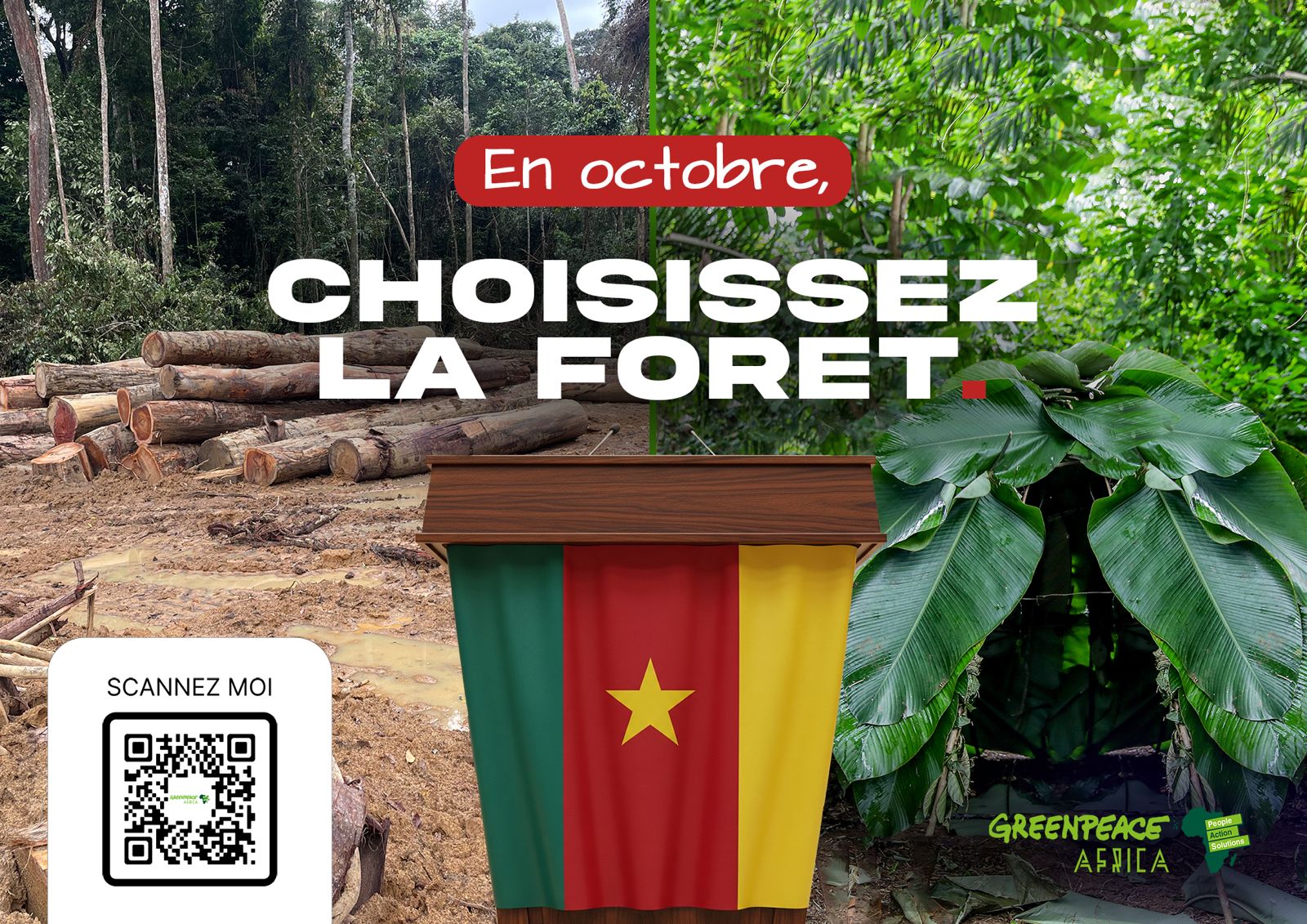By Leocadia Bongben
The Climate Justice Movement, CJM, is urging presidential candidates to prioritise climate justice and environmental conservation in their programmes and to implement audacious governance to make Cameroon more equitable, green, and climate resilient.
The movement of 40 civil society organisations, youths, and local and indigenous communities regrets that candidates prioritise the economy and development over the rights of indigenous peoples, the environment, and forests.
It is within this context that the President of the Association of Young Indigenous People, AJPAC, Nyangono Lerys, sent this message to the candidates.
“What we ask, of course, of the next president, is the legal recognition of the status of indigenous populations through the ratification of the OIT Convention No. 169 relating to indigenous peoples and tribes. “The prospective president will either ratify this treaty or incorporate this law into our legal toolbox,” Nyangono stated.
The Congo Basin, they say, the second largest tropical rainforest after the Amazon and a carbon reservoir of global and regional importance for climate regulation, is a source of food, water, and shelter for millions of people and is threatened by deforestation, illegal resource exploitation, and the exclusion of the local population from decisions that affect them.
In Cameroon, the effects of climate change are evident in the form of food shortages, drought, floods, and forced migration. The CJM demands political commitment that is unambiguous, quantifiable, and long-lasting.
Protecting and restoring the ecosystem, acknowledging and ensuring the rights of indigenous people and communities, and taking action for climate justice—which includes accelerating the energy transition to renewable energy, advancing climate equity, reducing plastic pollution, creating green jobs and environmental education, fortifying international partnerships, and providing funding—are the three main priorities for a sustainable Cameroon.
Angeline Mojo, representing Forêts et Développement Rural, FODER, a CJM member, says, “Cameroon has a historic opportunity of becoming a leader in climate justice. This invitation is to work together to create a future in which human dignity, the environment, and solidarity inform all political choices.”
Mojo said there is a need for reforestation of forests by 2030 and also to protect the rights of local communities and indigenous peoples in forest management, land and mining resources; invest in the green economy by creating sustainable jobs from the responsible management of ecosystems; agroecology through responsible agricultural practices of the environment; accelerate the fight against climate change by supporting local initiatives of adaptation and restoration of degraded landscapes; and also integrate environmental education in public policies and in school programmes.
FODER is committed to accompanying the state, local communities, and citizens, but Mojo says, “Our role cannot be as effective if political decision-makers do not place ecological sustainability at the heart of the national project.

“We want candidates who want to lead our nation to take tangible steps, not just make promises. Every political choice we make must safeguard our future, our communities, and our forest. We can only create a resilient, equitable, and sustainable Cameroon if we work together,” said Malvin Tankoh, Greenpeace Africa’s country coordinator.
He added Cameroon can increase its chances for a greener future through energy transition, promote justice and equity in the climate space, and inculcate climate resilience in aspects of the Nationally Determined Contributions. He equally called for a ban on single-use plastics.
In addition to the press conference on October 7, 2025, Greenpeace Africa and its partners launched several initiatives, such as a poster campaign in Douala, Yaounde, Kribi, and Limbe advocating for forest preservation and the protection of the rights of indigenous peoples.
Dr Nojounguep Juscar, AJESH, and Sa Majeste Victor Yetina of Ebo also attended the press conference.
The CJM call to action is a reminder that the climate issue is a daily occurrence that calls for swift, inclusive, and forceful political solutions.
Participants suggested that future initiatives involve the candidates in a news conference and that other ways to involve the candidates be explored.


